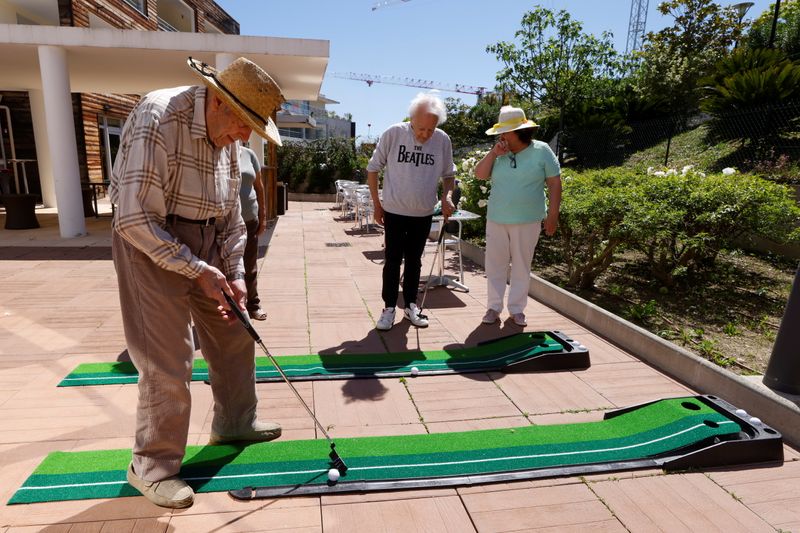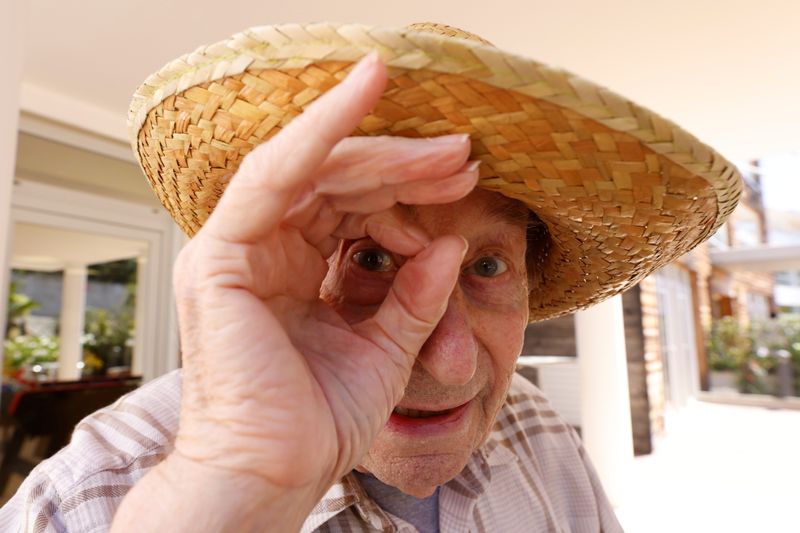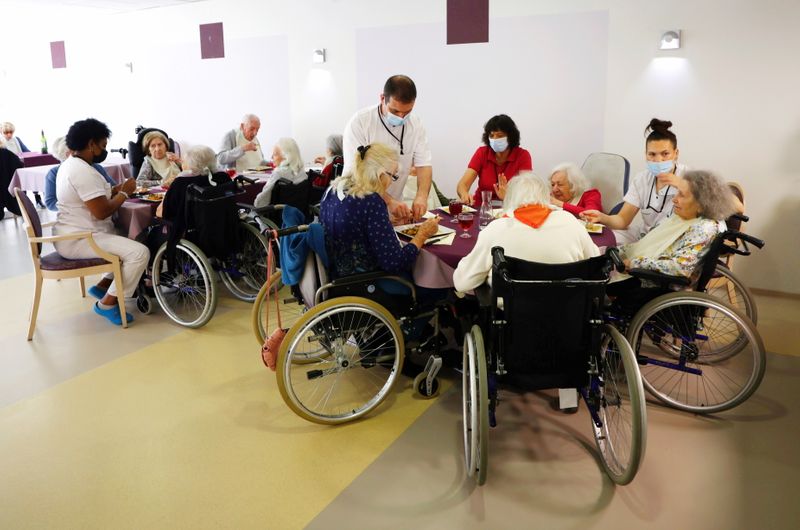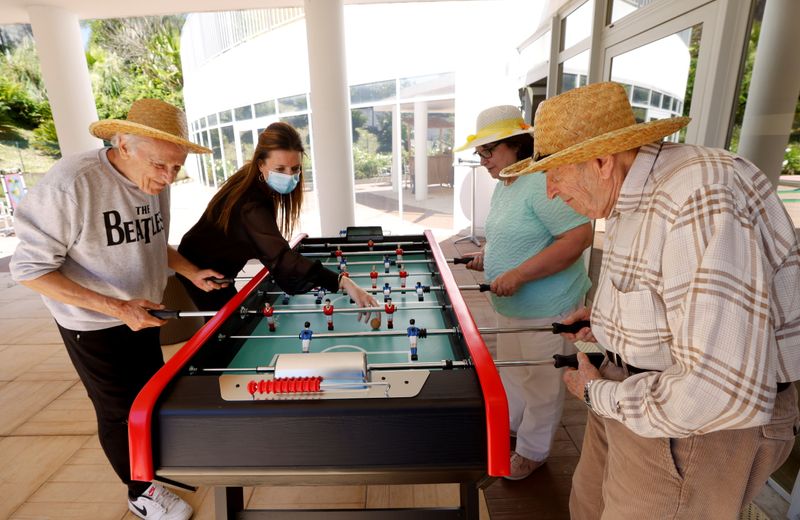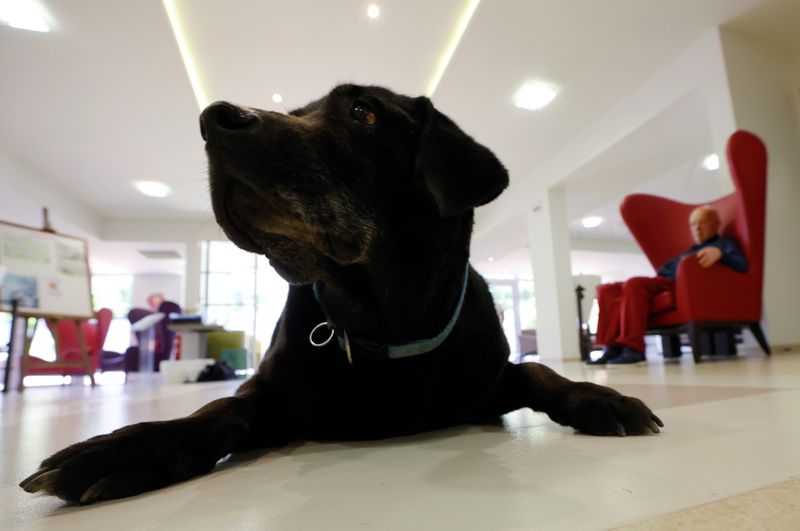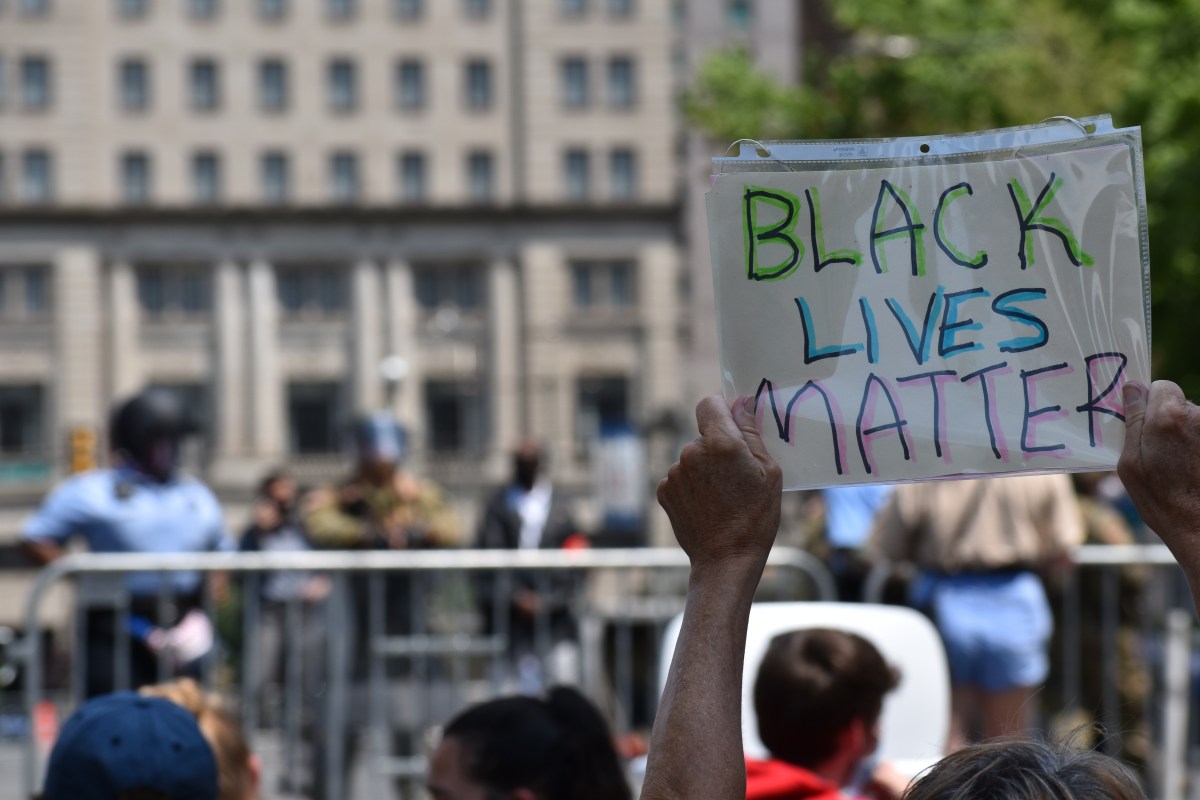VILLENEUVE-LOUBET, France (Reuters) – Bernard Sellier stood a little hunched at the table, his hands gripping the rods of tiny football players and a boyish grin on his 86-year-old face at a return to normal life in his French care home.
For months during the COVID-19 crisis, there had been strict rules on social interaction and visiting rights as staff fought to keep a ferocious killer of the weak and elderly at bay.
Now The Fig Tree and other care homes are lifting the toughest restrictions. Official data shows 99% of care home residents have received at least one COVID shot, and more than three quarters have had both.
“I’m not sick, I’m doing very well, everything is good,” said Sellier as he moved on to the home’s chicken roost to collect eggs. On an outdoor patio, residents nudged their balls towards two mini putting holes.
During the first wave, the coronavirus ripped through nursing homes with devastating effect. The government and carehome operators were caught off guard.
They struggled to get hold of face masks and other protective equipment as the disease triggered a global shortage. When France unwound its first lockdown a year ago, nearly 40% of all coronavirus-related deaths had occurred in care homes.
Just 14 COVID-related deaths have been recorded in homes so far this month, about 1% of the national figure.
“We already feel safer,” said resident Marie Maucelli.
Some precautions remain in place, in line with national guidelines, as France’s vaccination rollout gathers pace. Families cannot hug their loved ones and non-vaccinated visitors must stay behind a plexiglass screen.
The government has acknowledged the toll that depriving the elderly of their families’ love took on their wellbeing during the crisis but says it was necessary to save lives.
Vaccine hesitancy rates in France were among the highest in Europe at the start of the inoculation campaign but official data shows that a large majority of care home staff have received at least one dose.
“Initially I wasn’t really in favour of getting vaccinated,” said Nelly Prudhomme, who runs activities at The Fig Tree. “But I figured it was good to do. Primarily for our residents, to allow them to get out.”
(Reporting by Eric Gaillard; writing by Richard Lough; editing by Philippa Fletcher)

